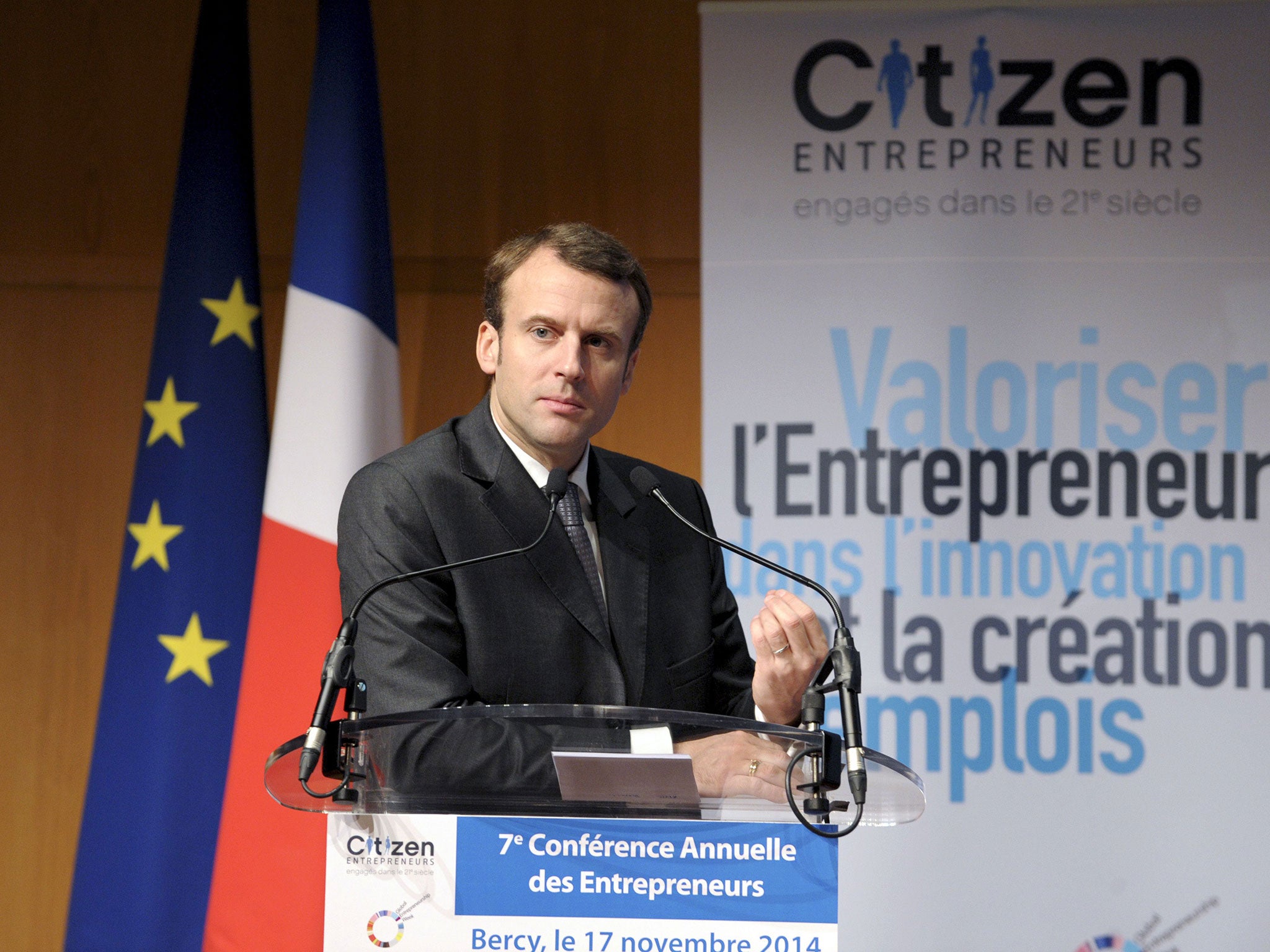France challenges Germany over eurozone stimulus
Emmanuel Macron urges Berlin to allow European bailout pot to be used to fund European investment

France’s new economy minister has publicly urged Germany to drop its resistance to a plan to use funds in a eurozone bailout pot to finance a continent-wide investment push.
Emmanuel Macron, speaking on a visit to London, said Europe should deploy some €50bn from the European Stability Mechanism (ESM) to invest in a host of productivity-enhancing capital investment projects, which would help lift the eurozone out of its present economic stupor.
“We need a macroeconomic stimulus and we are in a position to do it,” he said. “I’ve heard that there is German opposition and that it’s unrealistic. But if you don’t propose it, it’s unrealistic to [expect to] gain. It’s the right moment to open this question. It should not be a taboo.”
Mr Macron, a 36-year-old former merchant banker who has been given a brief by the French President Francois Hollande to reform France’s labour market, insisted a pan-European fiscal stimulus was needed to complement structural reforms from national governments.
He cited the example of Portugal, which has struggled to grow since being forced to request a bailout from the eurozone and the International Monetary Fund in 2011. “Portugal did all the possible reforms and look at the situation. We didn’t properly invest there” said Mr Macron.
The new president of the European Commission, Jean-Claude Junker, has proposed a €300bn investment plan over three years, involving both public and private funds, with a lead role in dispersing money being taken by the European Investment Bank.
But Mr Macron said there was a danger this proposal would simply turn out to be existing EU funds relabelled. “It doesn’t make sense to reshuffle EU money,” he said. “We need something significant in terms of real new money. What I don’t want is a fake investment programme in Europe.”
The ESM was established at the height of the eurozone financial crisis in 2012 by member states to provide up to €500bn in emergency loans for countries frozen out by the bond markets. It is backed by €80bn in paid-in capital. Cyprus and Spain have used the facility but around €50bn remains untapped.
Mr Macron said the stimulus funds should be spent on digital, energy and research and development projects across the Continent, describing it as “a New Deal for Europe”. He added that it would help drawn in a further €250bn of private sector investment spending.
The German finance minister, Wolfgang Schauble, poured cold water on the French stimulus idea when it surfaced in September. “The €80bn in the European bailout scheme are not at the disposal of all possible creative ideas,” he said. “They are a provision to ensure the European currency remains stable and retains the confidence of financial markets”.
On France, itself, Mr Macron said it now had no alternative to reforming its sclerotic labour market. “Normally we spend public money. We are doing exactly the opposite, not because we’re in favour of political suicide but because reforms are necessary for French society,” he said, adding that he wanted to make it easier for the French to work longer hours and for traders to open on Sundays. “We have to attack all the monopolies, we have to restore the attractiveness [of France] to risk takers” he said.
However, Mr Macron, who is one of France’s youngest ever cabinet members, denied accusations the Hollande administration had “killed” growth in France since 2011 with its attempts to raise taxes on the wealthy. “We were not sufficiently clear,” he said. “There was a lack of ideological clarity.”
Asked about the possibility of Britain leaving the European Union Mr Macron suggested a departure would not be rational given that the City of London relies on ready access to European capital markets. “I think the UK is a sensible nation with rational people. I don’t see how it can be rational to leave,” he said
Subscribe to Independent Premium to bookmark this article
Want to bookmark your favourite articles and stories to read or reference later? Start your Independent Premium subscription today.

Join our commenting forum
Join thought-provoking conversations, follow other Independent readers and see their replies